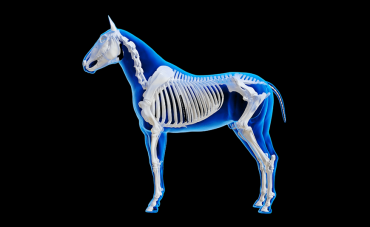The return of sunnier days brings with it a climate that’s perfect for riding and spending more time outdoors with your horse. However, these summer temperatures also promote the proliferation of insects. Even though insects and ticks have a role to play in biodiversity, they can be carriers of disease for your horse. What illnesses can ticks and insects transmit to your horse? How do you protect your horse against insects and ticks?
What illnesses can ticks and insects transmit to your horse?
Ticks and insects can be carriers of disease, and can transmit illnesses when they bite your horse.
The majority of illnesses transmitted are infectious; in other words, a pathogenic agent will be introduced into the blood and will develop in your horse’s body. These can involve viruses, bacteria, or parasites.
The diseases transmitted by ticks include piroplasmosis, Lyme disease and anaplasmosis. It is difficult to tell the difference between these illnesses without analysing the affected animal’s blood. Put simply, these three illnesses are characterised by very similar and general symptoms like fatigue, reduced appetite, poor performance or a decline in your horse’s general condition.
- Piroplasmosis is caused by a protozoa transmitted by the bite of certain ticks. It attacks red blood cells and causes their destruction. In addition to the symptoms described above, the horse will develop anaemia.
- Lyme disease is caused by bacteria transmitted by the bite of certain ticks. It develops in exactly the same way as a general bacterial infection. We’ll see the classic signs of an infection: fever, fatigue and loss of appetite, as well as more specific signs like joint pain and muscle pain. In certain severe cases, the horse’s nervous system may be attacked. Lyme disease can be transmitted to humans, but not directly from horse to man. As with horses, the illness is transmitted to humans through a tick bite.
- Anaplasmosis is caused by a bacteria transmitted by the bite of certain ticks. This bacteria attacks blood cells. A blood test can reveal a reduction in blood cells, such as white blood cells, red blood cells or platelets. The clinical signs are similar to those of piroplasmosis or Lyme disease: fatigue, loss of appetite and fever, etc.
Certain illnesses are also transmitted by insects. These are mainly viruses.
- West-Nile fever is caused by a virus transmitted by the bite of certain mosquitoes. A fever is the first clinical symptom your horse will develop. The illness may then evolve to affect the nervous system. The virus can also be transmitted to humans through mosquito bites.
- Equine infectious anaemia is caused by a virus transmitted by the bite of certain insects. The presence of this virus may show in various ways: acute form with constant fever; chronic form with a drop in fitness, fatigue and intermittent fever; or symptomless form which may also occur between two periods of a chronic condition.
- Recurrent summer sweet itch: this involves an allergic reaction rather than an infectious agent. Your horse will develop an allergy to the bites of certain mosquitoes. This starts with itching, especially at the mane and the base of the tail. Hair and, in some cases, skin will be damaged by repeated scratching.
How do you protect your horse against insects and ticks?
Here’s a quick reminder:
- Fly masks
- Fly sheets
- Insect and tick repellents
- Adapted turn out regime: avoid the end of the day
- Dermal lotion after sensitisation
- Pasture management: shelter, fellow horses, avoiding humid areas
Using insect repellent will allow you to protect your horse from insects without killing them and therefore limit the impact on biodiversity.
Audevard products are available from your vet.










